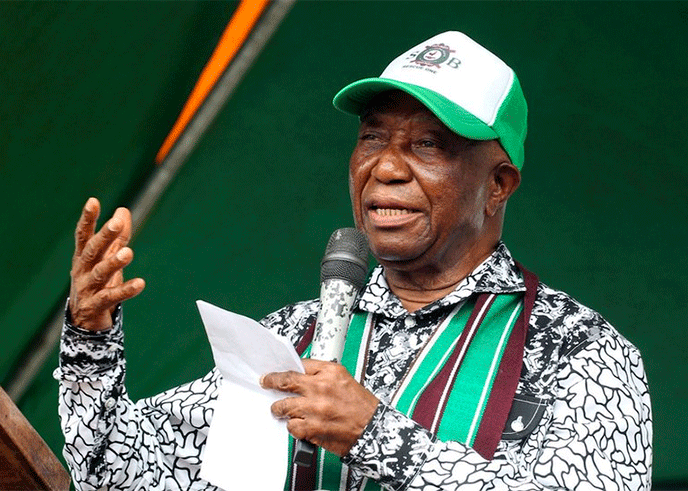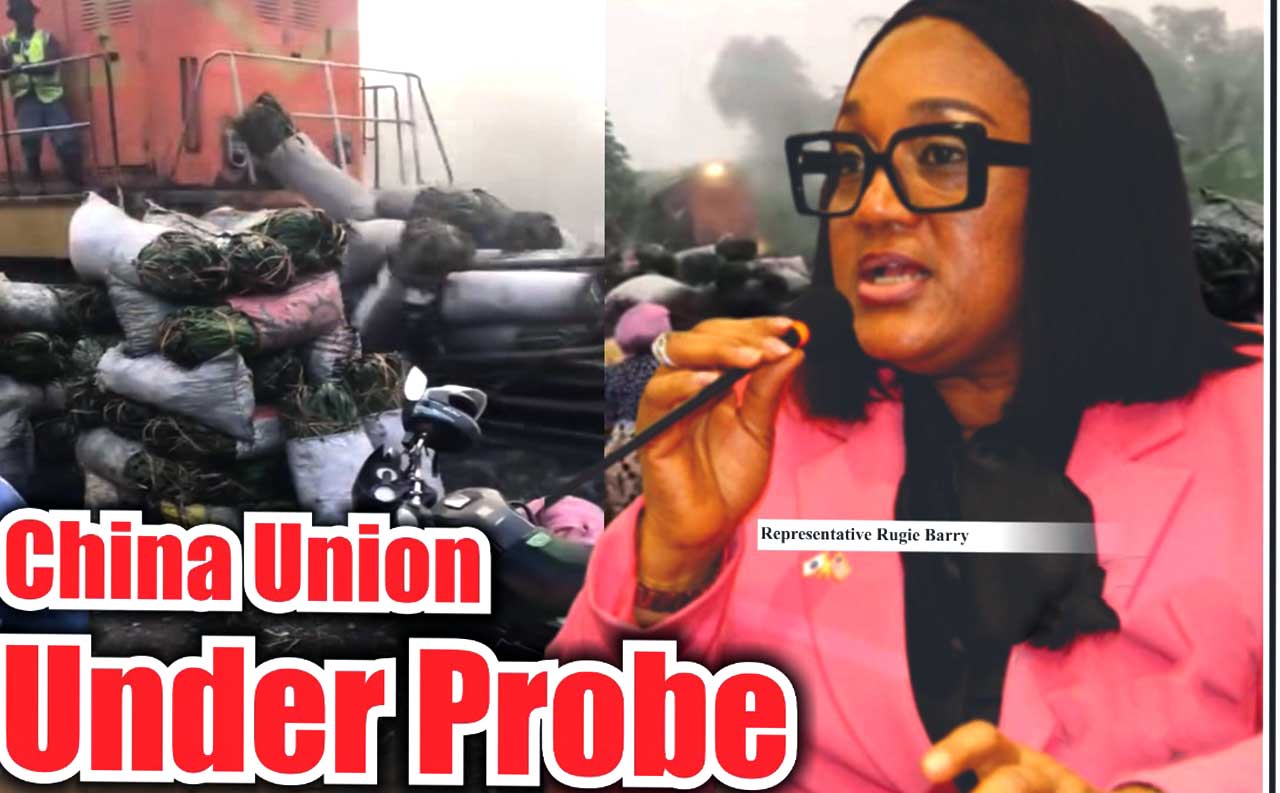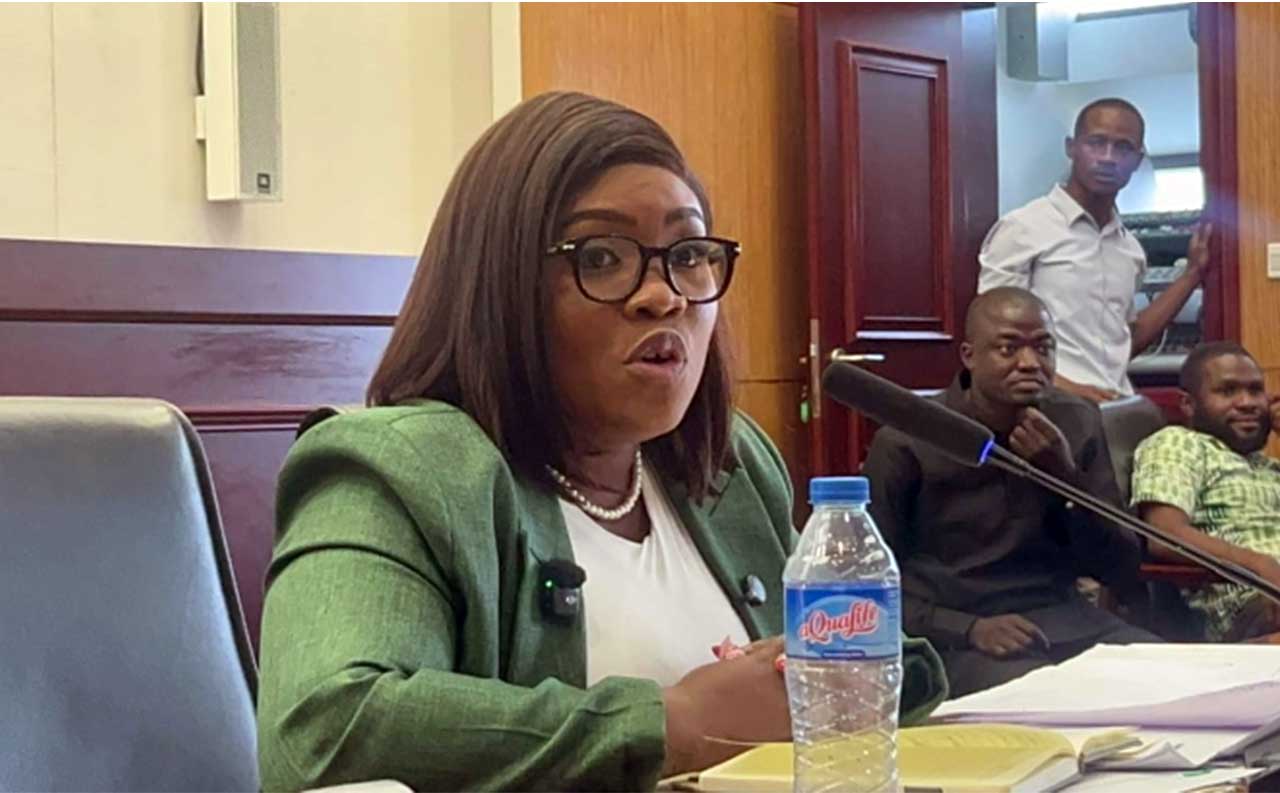With less then 24hrs after Senate Pro-tempore revealed that her budget allocated has undergone a substantial reduction by US$1.5 million annually, marking a significant decrease from the previous allocation, President Joseph N. Boakai Sr. has announced a voluntary 40% reduction in his salary.
According to the President, the announcement reflects his determination to lead by example in strengthening government accountability and demonstrating solidarity with the people of the nation.
The Liberian Leader said the move is aimed at setting a precedent for responsible governance and nation-building.
In addition to his own salary reduction, the President has pledged to empower the Civil Service Agency (CSA) to ensure that public servants’ salaries are in line with the current state of the nation and that workers receive fair compensation for their contributions to the country.
The Liberian Chief Executive pledged his commitment to financial responsibility and fair compensation for public servants from various sectors of society as a positive step towards fostering a culture of accountability and equity within the government
This week, Deputy Minister for Press and Public Affairs Daniel O. Sando revealed that the budget allocated to the office of President Pro-Tempore Nyonblee Karnga Lawrence has undergone a substantial reduction.
The new budget stands at US$1.5 million annually, marking a significant decrease from the previous allocation.
According to Minister Sando, before the Unity Party Government assumed office, the budget for the Pro-tempore’s office was US$3.3 million. The decision to slash this budget by more than half reflects a strategic move by the government to streamline expenditures and ensure fiscal responsibility.
“The reduction from US$3.3 million to US$1.5 million is a prudent measure taken in the interest of the people,” Minister Sando emphasized.
He further elaborated that such cuts are necessary to optimize resource allocation and prioritize essential governmental functions.
However, concerns have arisen regarding the adequacy of the revised budget. Minister Sando acknowledged these concerns, stating that US$1.5 million might not be sufficient to effectively run the Pro-tempore’s office throughout the year.
Nevertheless, he assured the public that careful planning and efficient management strategies would be implemented to make the most out of the allocated funds.
The decision to decrease the Pro-tempore’s office budget comes amidst broader efforts by the Unity Party Government to rationalize government spending and improve financial accountability. Minister Sando reiterated the government’s commitment to transparency and prudent financial management as key pillars of its governance agenda.
President Pro-tempore Nyonblee Karnga Lawrence has not yet commented publicly on the budget reduction. It remains to be seen how this significant cut will impact the operations and responsibilities of the Pro-Tempore’s office moving forward.
As discussions continue on the implications of this budget adjustment, stakeholders and the public alike await further developments and assessments of its impact on governmental efficiency and service delivery.
The Pro-tempore allocation cut amidst growing public discontent this week after activist Martin N. Kollie reveal now lawmakers allotted 54, 000 each to themselves for luxury vehicles while not a cent was added to civil servants salaries as promised by the Unity Party during the 2023 elections campaign.
The people of Liberia have been severely impacted by lawmakers’ excessive greed. The country’s legislative budget has swelled from US$9.4 million in 2006 to an alarming US$67.9 million in 2023.
Shockingly, the approved 2024 budget is not accessible to the public, leaving us in the dark about the allocations to the Legislature. This lack of transparency is deeply concerning and demands immediate attention.
The Liberian lawmakers are known for their rent-seeking behavior, with each senator and representative receiving a staggering US$30,000 from the so-called Legislative Engagement Fund in 2020, totaling US$3.6 million.
In 2021, an additional US$15,000 was allocated to each lawmaker for development projects in their constituencies.
Despite widespread criticism, the Senate and the House of Representatives have consistently brushed off concerns about their expenditures and benefits.
Efforts by the media, civil society groups, and concerned citizens to obtain details of the fund have been met with obstacles.
The recent shocking revelations about the National Legislature inflating the 2024 budget by US$738.8 million and allocating an extra US$13.2 million for shady Legislative Support Projects and district development funds mark a grave abuse of public funds.
Under the Legislative Support Projects, each of the 73 representatives will receive US$100,000 for District Development Funds, while each senator will receive US$150,000.
The allocation of funds for Legislative Support Projects per county includes staggering amounts such as Montserrado receiving US$2 million, Nimba US$1.2 million, Sinoe US$600,000, Grand Bassa US$800,000, and Maryland US$600,000, among others.
According to Speaker Fonati Kofa, the Liberia Agency of Community Empowerment (LACE) is entrusted to implement these projects.
At the same time, oversight lies with an appointed Oversight Committee led by Deputy Speaker Thomas Fallah for the House of Representatives.
At a time when millions of Liberians are struggling, it is morally wrong for legislators, as representatives of the people, to allocate such a substantial portion of the budget for themselves.
These unauthorized legislative support projects provide a channel for millions to be siphoned off by members of the legislature through contractors and other intermediaries.
Sadly, House Speaker Fonati Kofa defended the legislative decision, claiming that it supports grassroots development and inclusive governance.
There are concerning details about the US$30, 000 received by each senator and representative in 2020 under the guise of the Legislative Engagement Fund and the US$15,000 received by each representative for the legislative project in 2021.
It is clear that the Legislative Engagement Fund and the legislative project during the 54th Legislature, when Fonati Kofa served as Deputy Speaker and Thomas Fallah as Chairman of the Ways and Means Committee in the House of Representatives, have been linked to mismanagement and potential corruption.
Funds allocated for these projects failed to reach their intended beneficiaries, as they were either misappropriated or diverted into the personal accounts of politicians for their own gain.



